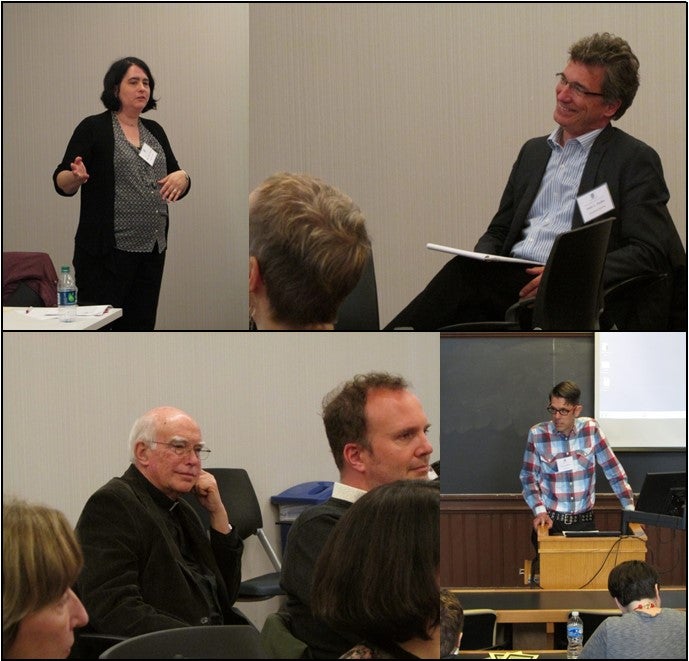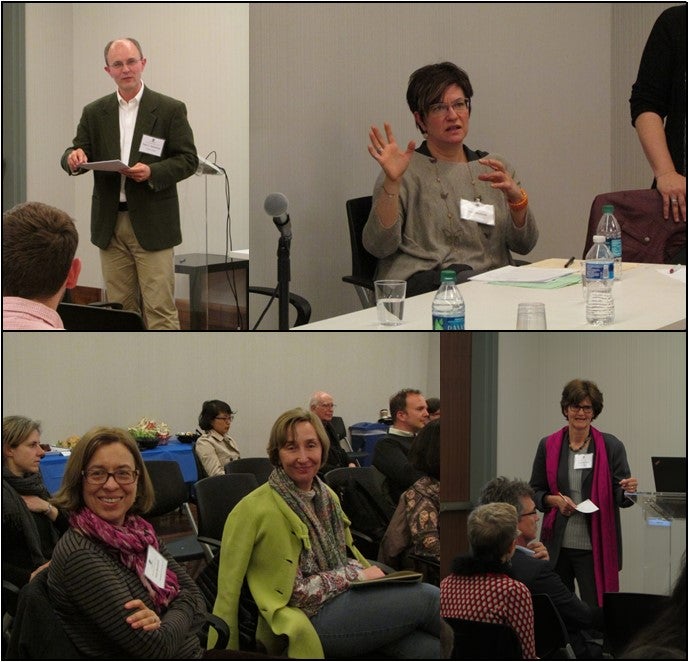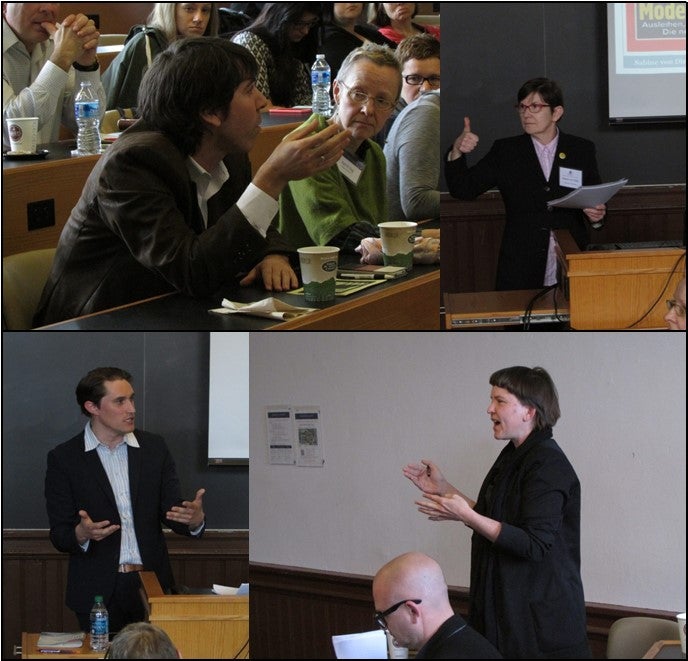Meanings of Modern Work in Times of Disruption, 19th and 21st Centuries
Georgetown German Professor Peter C. Pfeiffer, in cooperation with the BMW Center for German and European Studies and the Deutsche Akademische Austauschdienst (DAAD), hosted an international and interdisciplinary conference on April 8th and 9th exploring “Meanings of Modern Work in Times of Disruption in the 19th and 21st Centuries.” The conference brought together a wide array of scholars and professionals from American and European Universities to present their recent research and foster interdisciplinary dialog in the six panels moderated by Georgetown German Department professors and one of our department’s PhD candidates, Emily Sieg.

clockwise from upper left: Prof. Mary Helen Dupree, Prof. Peter C. Pfeiffer, Cyrus Shahan, Prof. Ron Murphy, S.J.
The participants began the conference with a panel exploring the historical approaches to work with featured speaker Professor of Sociology Richard Biernacki (University of California, San Diego) offering an intriguing contrast of the early modern German and English publishing systems’ respective views of the author as either a seller of Arbeitskräfte or a seller of products. The first day included an exploration of models of different ways to organize work in Goethe’s late novels and ended with two presentations examining work ethic and success in times of disruption both in contemporary German literature and the 19th century works of Swiss author Jeremias Gotthelf.

clockwise from upper left: Dr. Peter C. Meilaender; Dr. Beth Muellner; Prof. Friederike Eigler; Profs Banchoff and Weigert
The second day saw another three fascinating panels covering the relations of labor, film, and philosophy to the meanings of work. Dr. Anna Echterhölter kicked off the first panel with a presentation of her research on the use of welfare and government programs in times of disruption and its current implementation through “Smartcards” in modern refugee camps. The film panel addressed different representations of work, especially female work. The final panel of the day and the conference dealt with philosophy and meanings of work exploring the role of leisure, technology, and even Nietzsche’s relation to the modern self-help book. Featured speaker Professor of Philosophy Michael Festl (University of St. Gallen) sparked intense discussion in his argument for a new normative conception of work and the role of workers. The guests ended the second day of the conference with the opportunity to continue their fruitful interdisciplinary discussions over hors d’oeuvres at a reception in the German Department. The reception and conference ended with heartfelt words by Dr. Sabine von Dirke (University of Pittsburgh) for all of the hard work put in by Professor Pfeiffer, Courtney Feldman, and the entire German Department that made the conference such a great success. (Text by Nathan Tschepik)

clockwise from upper left: Prof. Mark Lauer and Prof. Katrin Sieg; Dr. Sabine von Dirke; Dr. Anna Echterhölter; Dr. Michael Festl